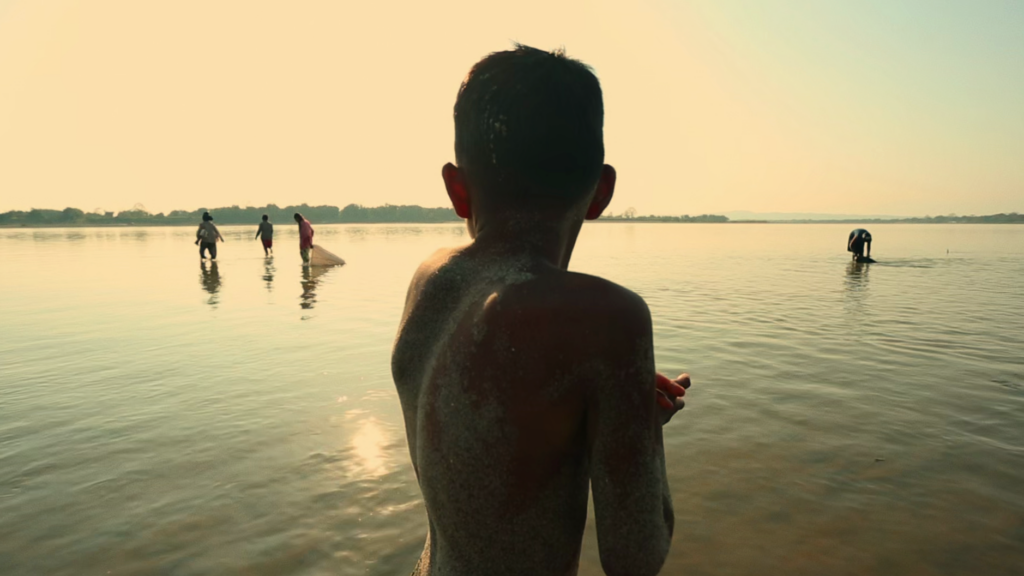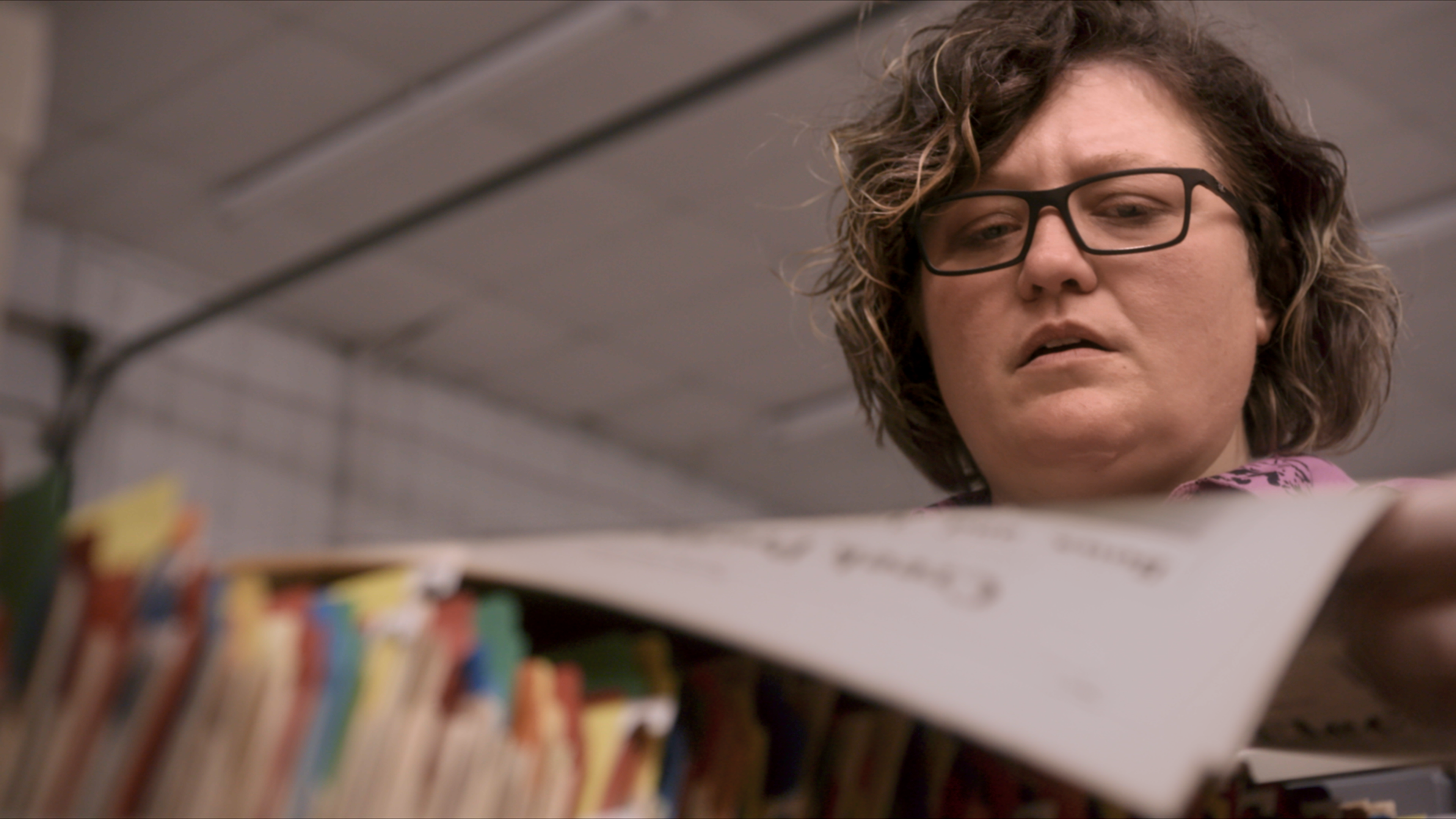The fragility of freedom of the press is at the forefront in the documentary feature BAD PRESS, which screened at this year’s Hawai‘i International Film Festival (HIFF43).
The unique precarity surrounding the issue is detailed onscreen as viewers follow Angel Ellis, a reporter for Mvskoke Media and part of the Muscogee Creek Nation, which is located in Oklahoma.
Mvskoke Media is a small newspaper which serves Muscogee Creek Nation, a Native American community, which, as one reporter in the film remarks, “are among the most invisible or misunderstood in the country.”
There are a number of pieces to the legal framework that many might find stunning in the film, internally and externally. Out of 574 federally recognized tribes in the U.S., only five have laws protecting freedom of the press. Since Native American tribes are part of sovereign nations, they have their own constitution and laws and do not have the same protections that are provided in the U.S. constitution.
BAD PRESS serves as a clearly illustrated narrative of the precious nature of freedom of the press. It can, without warning, quickly be taken away.
In November 2018, freedom of the press for the Muscogee Creek Nation was suddenly repealed in a single round of voting by elected leaders.
A long, complicated battle ensues to reclaim the right, which is met with opposition and misinformation, and cannot be accomplished alone.
There are numerous elected officials to appeal to, with various political and economic interests attached behind the scenes. Votes must support candidates who support the legislation, a simple majority must be achieved for the right to be won back. An elected official tries to advocate to put the right back on the ballot, which can only be done with enough support.
The film is a powerful account of the truly fragile nature of the freedom of speech, that which can be said of many rights. It is also a reminder that freedoms of speech and the press are not a given; rights must continually be protected and fought for, with widespread support.
And the fight is not exclusive to the Native American community, it is universal. It is transparent in the U.S., with book bans and education reform in an era of deep political division. In other films from this year’s festival, such as ABOVE AND BELOW THE GROUND and RAZING LIBERTY SQUARE, threats to freedom of speech occurred both onscreen and off.

A number of realities presented in BAD PRESS resonated with me personally, especially as a journalist and part of a minority community in the U.S.
Adversity in the face of independent journalism can appear in many different forms.
Many questions arose since I began freelancing as a journalist in 2014. You end up facing adversity in places and forms that you don’t think about until they’ve materialized in front of you.
Specific moments come to mind.
I recalled one from years past when I was writing for a small, ethnic media publication. Though its audience was fewer in number than that of major media outlets, it provided significant, thoughtful coverage for a community not regularly covered by mainstream media.
I applied for a press credential for the publication to cover a major event, a well-known festival with thousands of attendees. A number of diverse artists would be showcasing their work – all were artists from underrepresented, marginalized communities.
After submitting my application with all the necessary information, I heard back: my credential was not approved.
No answer was given as to why. My editor at the time suggested that I don’t think too much of it, since we were part of a small publication.
But because I was serving a small, ethnic community, I would describe the impact of the experience as a quiet, invisible slap.
If I didn’t cover these diverse, emerging artists, who else will? What if no other press coverage happens to publish anything about them from this event?
It is an unspoken pressure that hangs in the balance, specifically as an Asian American covering my own community. In the beginning, I would wrestle with instances when editors passed on the stories I pitched. If I don’t pitch a particular Asian American artist or community issue, who will? And if another journalist who is not part of the community pursues the same story, how will culturally sensitive issues be covered?
There is an immense power in journalism and in storytelling. That is why there are so many political and economic interests vying to control narratives.
Another moment I recall is when I had scheduled an interview for a story. It had been confirmed a couple weeks in advance, as well as the relevant topics I was focusing on for the piece. Just a few hours before the scheduled interview, the interviewee’s representatives suddenly requested – and insisted upon – a copy of all of the specific, verbatim questions that would be asked.
Representatives wanted to carefully control the story, and thus, the individual’s image. Not surprising. However, no request was given in the weeks prior, though there were plenty of opportunities to do so.
Some might think, well, though maybe inconvenient, there’s nothing wrong with that, right?
The problem is that if you have all the questions in advance, and you’ve been coached by your own team to give all the “perfect answers,” your interview becomes more of a fluff piece.
When stories are tightly controlled, they’re no longer credible. That’s what publicity departments are for (Ellis also points this out in BAD PRESS).
One indicator of a healthy, free press is publication of criticism. I view having both negative and positive press coverage to be a good sign of a healthy democracy. Attacks on freedom of the press are attacks on democracy.
Even with a free press, narratives can still be vulnerable to control and influence, and challenges to independent journalism can appear in different ways.
Like so many other rights, freedom of the press can be taken for granted unless it is threatened. It can be easily lost, is difficult to win back, and is a right that falls upon everyone to fight for.
 Melissa Kim is a writer, journalist, and media consultant. Her work has highlighted independent films, Korean talent, and Asian American artists at SXSW, Sundance, Tribeca, and the Hawai’i International Film Festival. Her articles have been published in NBC News, Character Media, Koreanfilm.org, and Mochi Magazine. She also co-produces Kdrama Reports, a podcast covering Korean content. Melissa’s experience in the media industry has led her to many different roles, from organizing open call auditions and directing a short film to working in international television distribution and assisting at MIPCOM. Melissa was also part of the Start-Up Writers Team for “Two Scoops Funny,” a show featuring original comedy sketches at last year’s Hawaii Comedy Festival. Melissa has an M.A. in Asian Studies; her graduate research has examined South Korea’s independent film movement and the impact of Korean television dramas on the American distribution market.
Melissa Kim is a writer, journalist, and media consultant. Her work has highlighted independent films, Korean talent, and Asian American artists at SXSW, Sundance, Tribeca, and the Hawai’i International Film Festival. Her articles have been published in NBC News, Character Media, Koreanfilm.org, and Mochi Magazine. She also co-produces Kdrama Reports, a podcast covering Korean content. Melissa’s experience in the media industry has led her to many different roles, from organizing open call auditions and directing a short film to working in international television distribution and assisting at MIPCOM. Melissa was also part of the Start-Up Writers Team for “Two Scoops Funny,” a show featuring original comedy sketches at last year’s Hawaii Comedy Festival. Melissa has an M.A. in Asian Studies; her graduate research has examined South Korea’s independent film movement and the impact of Korean television dramas on the American distribution market.
The HIFF ONLINE CREATIVES & CRITICS IMMERSIVE (HOCCI) program supports sustainable film criticism in Hawai‘i through mentorship and paid career opportunities. The mission of HOCCI is to broaden diversity in film criticism across the Pacific region and use influencer branding strategies to spark career opportunities in Hawai’i, not be hampered by oceans, state borders and distance, because geography is no longer a barrier. The 2023 HOCCI is supported by Critical Minded, a grant-making and learning initiative that supports cultural critics of color in the United States.



